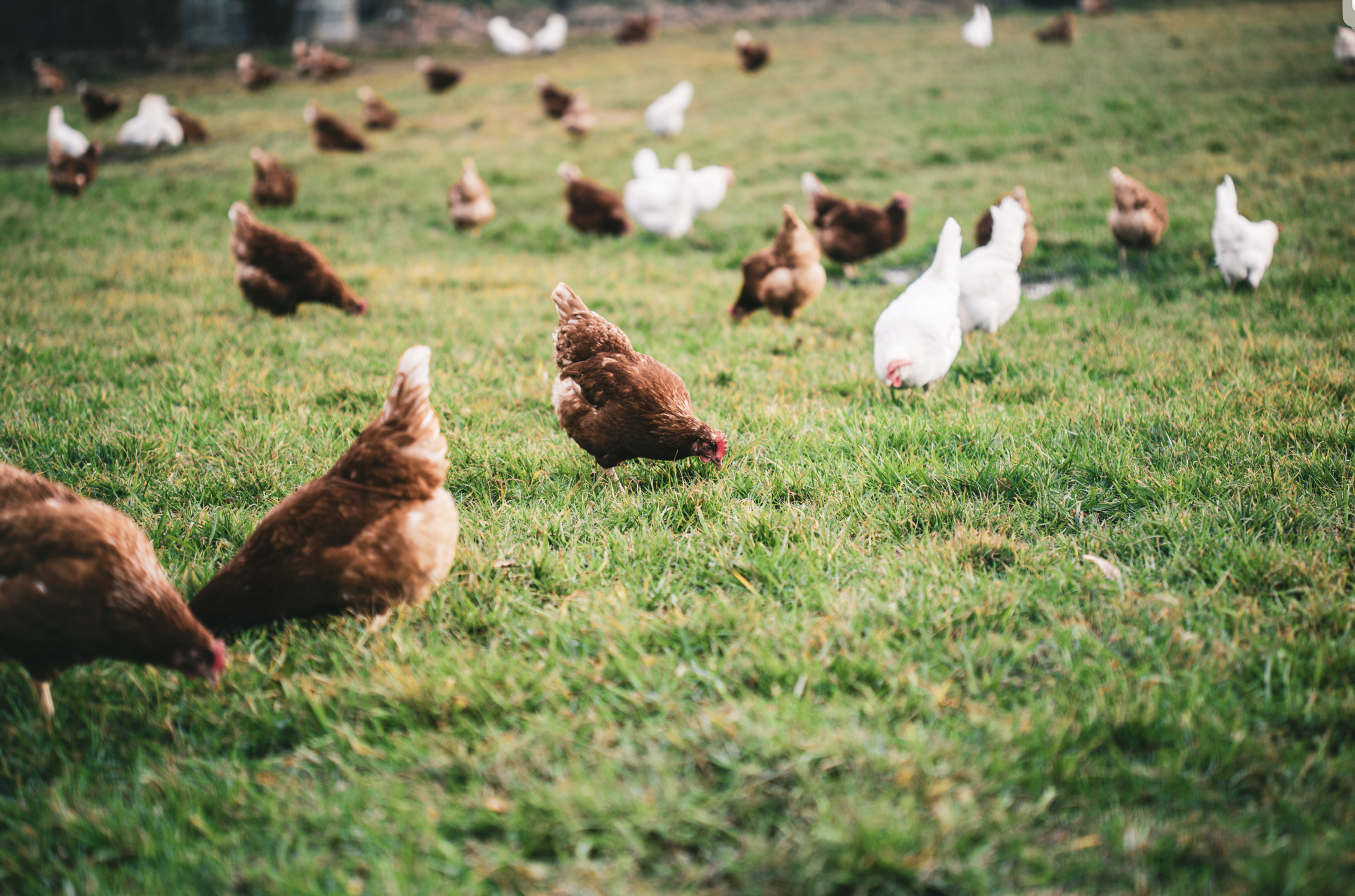Why Raw Pet Food in the UK Is Low Risk for Transmission of H5N1 to Dogs

In recent weeks, there has been media attention surrounding concerns about the transmission of H5N1, the avian influenza virus, to pets, particularly through raw pet food. As pet owners, it’s natural to want reassurance about the safety of the food we provide for our beloved companions. We want to take the opportunity to address these concerns and explain why the risk of H5N1 transmission to dogs in the UK, particularly through our raw pet food, is extremely low.
1. The Media Case Involved a Cat in the USA, Not a Dog in the UK
The recent media attention surrounding avian influenza focused on a tragic incident in California, USA, where a cat died after contracting H5N1. While this is understandably concerning, it’s important to note that cats are known to be more susceptible to avian influenza than dogs. Furthermore, this case occurred in the USA, not the UK.
We always aim to provide accurate, up-to-date information. There have been no reports of dogs or cats contracting H5N1 in the UK, and the situation remains stable. In fact, the occurrence of avian influenza in pets is incredibly rare, particularly in dogs. The media’s focus on a single case in another country should not cause undue alarm, as it does not reflect the actual risk to pets in the UK, which remains minimal.
2. The USA Has Faced Greater Challenges with Avian Influenza Than the UK
It’s also important to understand the differences between how the USA and the UK have dealt with avian influenza. The USA has faced a significantly larger scale of H5N1 outbreaks, largely due to its massive poultry industry and more widespread outbreaks. Some critics have pointed out that biosecurity measures in the USA may not have been as rigorous or well-enforced, allowing for higher rates of infection among poultry populations.
In contrast, the UK has a strong track record of effectively managing avian influenza. Since 2021, the UK government has implemented strict bird lockdowns whenever there is a risk of H5N1, ensuring that both commercial and domestic birds (including pet chickens) are protected. These measures have been highly effective in controlling the spread of the virus. To date, there have been no reported cases of H5N1 transmission to dogs or cats in the UK, and the virus remains well-contained.
3. Why UK Biosecurity Is Effective in Protecting Pets
The UK’s biosecurity measures are among the most robust in the world. The government enforces strict regulations on poultry farming, transportation, and processing, ensuring that the risk of contamination in raw pet food is minimized. When an avian influenza outbreak occurs, swift action is taken to contain it, including locking down affected bird populations and enhancing surveillance of poultry supplies.
These rigorous biosecurity controls play a crucial role in reducing the likelihood of pathogens like H5N1 entering the food supply. Pet owners in the UK can have confidence in the safety of their pets’ food, knowing that the risk of contamination from avian influenza is low.
4. Why Naturaw’s Raw Pet Food Is Even Safer: British Meat, Free Range Poultry, and Trusted Suppliers
At Naturaw we go the extra mile to ensure the safety and quality of our raw pet food. We use 100% British meat in all our products, which means there is no risk of contamination from poultry imported from countries with less stringent biosecurity standards, like the USA. By sourcing locally, we support the UK’s strict regulations, which further reduce the risk of H5N1 transmission.
We exclusively use Free Range or Organic Chicken and Turkey in our raw pet food. Aside from living a happier life in higher welfare conditions, free range and Organic poultry is less likely to be a breeding ground for pathogens like avian influenza compared to those raised in factory farming environments. High-density farming can contribute to the spread of viruses, while Free Range and Organic farming practices help to reduce this risk by allowing birds more space and more hygienic living conditions.
Additionally, all of our poultry is sourced from trusted, licensed suppliers who comply with UK government regulations, ensuring the highest standards of animal welfare and food safety. This means that the meat used in our pet food is less likely to contain harmful pathogens, including H5N1.
5. A Commitment to the Highest Standards: APHA-Approved and Voluntary Raw Pet Food Inspection Scheme
As a company committed to the highest levels of food safety and transparency, we are proud to be an APHA-approved pet food plant. The Animal and Plant Health Agency (APHA) approval means that our facilities meet strict UK government standards for food safety and hygiene, providing an extra layer of reassurance for our customers.
In addition to our APHA approval, we are part of the voluntary Raw Pet Food Inspection Scheme implemented by UK Pet Food, the trade body representing the UK’s pet food industry. This scheme helps ensure that raw pet food manufacturers adhere to stringent safety standards, including regular inspections and compliance with all relevant regulations. As part of this scheme, we undergo regular audits to maintain our high standards of food safety, hygiene, and quality control.
By being part of this voluntary scheme, we demonstrate our ongoing commitment to producing safe, high-quality raw pet food that meets the best industry standards.
6. The Numbers: Why One Isolated Case Doesn’t Indicate a Widespread Risk
While the media coverage of the cat case in California has raised concerns, it’s essential to put it into perspective. The USA is home to approximately 89.7 million dogs and 73.8 million cats, and the fact that only one isolated case has been reported does not indicate a widespread problem. This should not be seen as a reflection of a significant risk to pets in general.
In reality, dogs are much less susceptible to avian influenza compared to other animals, and there is little risk of them contracting the virus through raw food. The vast majority of pets – whether in the USA or the UK – remain unaffected by H5N1. At Naturaw, we are confident that the risk to dogs in the UK remains extremely low.
7. Conclusion: The Risk to Dogs in the UK Is Minimal, Thanks to Strong Biosecurity and Sourcing Practices
In conclusion, the transmission of H5N1 to dogs in the UK via raw pet food is extremely unlikely. Thanks to the UK’s effective biosecurity measures, there have been no reported cases of avian influenza in pets, and the risk remains minimal. We go above and beyond to ensure the safety of our raw pet food by sourcing only the highest quality British, Free Range, and Organic poultry. Our commitment to using trusted suppliers and adhering to stringent food safety standards provides our customers with the peace of mind that their pets are getting the safest, healthiest food possible.
With our APHA approval and participation in the UK Pet Food Raw Pet Food Scheme, we maintain the highest levels of food safety, hygiene, and quality control. So, pet owners in the UK can continue to feed their dogs our raw food with confidence, knowing that we take every step to minimise any risk.
Your pet’s health is our priority it’s why we started the business over 10 years ago to save and improve the life of our own dogs – and that now includes working hard to take steps to reduce potential harmful contamination, including avian influenza.

